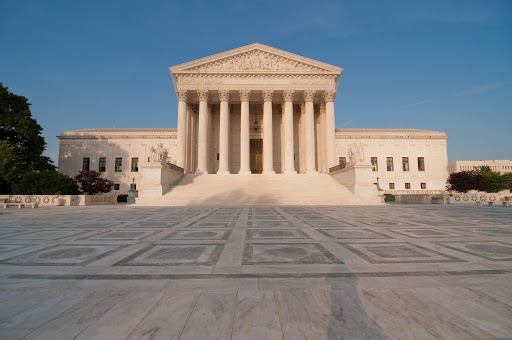The good news in the case of Burwell v. Hobby Lobby came out slightly before the reading did, when it was revealed that Justice Samuel Alito had written the majority opinion and would be reading from the bench.
On Bloomberg Law’s SCOTUSblog, a reader asked “How shocked would you be, on a scale of 1 to Andy-Kaufman-Is-Alive, if Justice Alito writes an opinion where Hobby Lobby loses?”
Editor and constitutional lawyer Amy Howe answered, “Much closer to the latter.” She could have said, “This one is in the bag.”
The vote on this case was 5 to 4 and the ruling was a narrow one. Alito wrote for the bloc of the four descriptively “conservative” justices, including Antonin Scalia, John Roberts, and Clarence Thomas. Anthony Kennedy, the usual swing voter, wrote a concurring opinion that sided with them.
What the Supreme Court did was apply the Religious Freedom Restoration Act to some privately held corporations. This includes Hobby Lobby, the family-owned firm which brought suit against the Department of Health and Human Services’ contraception mandate, which requires companies to purchase health insurance for their employees that includes funding for a broad range of contraceptives.
The evangelical Christian Hobby Lobby owners didn’t object to contraceptives as such but included in bundle of the 20 or so “must cover” drugs and devices were, in the Court’s words “4 that may have the effect of preventing an already fertilized egg from developing any further by inhibiting its attachment to the uterus.”
In the case of Hobby Lobby and two other businesses whose cases were consolidated into one grand bit of ObamaCare Solomonic scrutiny before the Court, “the owners…have sincere Christian beliefs that life begins at conception and that it would violate their religion to facilitate access to contraceptive drugs or devices that operate after that point,” Alito wrote.
The Court sided with the Hobby Lobby owners’ understanding of religious freedom in this case and against the narrow interpretation of freedom of religion as “freedom to worship” in church or synagogue, but then render one’s conscience unto Ceasar everywhere else, which was favored by the Obama administration.
There is a certain exasperation to the ruling. Take the HHS’s contention that “companies cannot sue because they are for-profit corporations, and that the owners cannot sue because the regulations apply only to the companies.”
Alito dispatches that bit of sophistry with prejudice. “[T]hat would leave merchants with a difficult choice: give up the right to seek judicial protection of their religious liberty or forgo the benefits of operating as corporations,” he writes. However, the Religious Freedom Restoration Act’s text clearly “shows that Congress designed the statute to provide very broad protection for religious liberty and did not intend to put merchants to such a choice.
“It employed the familiar legal fiction of including corporations with in RFRA’s definition of ‘persons,’ but the purpose of extending rights to corporations is to protect the rights of people associated with the corporation, including shareholders, officers, and employees. Protecting the free-exercise rights of closely held corporations thus protects the religious liberty of the humans who own and control them.”
This is a narrow win for religious freedom. It probably doesn’t apply to large publicly-traded companies and there are some questions about its application to certain nonprofits. And as the majority and concurring decisions point out, it doesn’t stop our government from stepping in and directly funding what many of its constituents consider abhorrent, with our tax dollars.
But the Hobby Lobby victory is a win for the notion that our religious freedom means something and not the malleable almost-nothing that our government would prefer. For that, we should all breathe a little easier.
Jeremy Lott is an editor of Rare.

